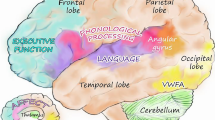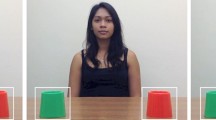Abstract
This article examines the work of Arnold Lucius Gesell and argues that he not only paved the way for contemporary research in motor development, but that he and colleagues anticipated fundamental issues about growth that must be addressed by psychologists and neuroscientists who are committed to the advancement of developmental science. Arnold Lucius Gesell was a pioneer in developmental psychology when the field was in its infancy. He worked diligently for the rights of physically and mentally handicapped children to receive special education that would enable them to find gainful employment. Gesell’s writings in books and popular magazines increased public awareness of and support for preschool education and better foster care for orphans. Despite these achievements, many of his successors have questioned his views about infant development. Developmental psychologists have criticized Gesell for proposing a stage theory of infant growth that has fallen into disfavor among contemporary researchers. His conception of development as a maturational process has been challenged for allegedly reducing complex behavioral, perceptual, and learning processes to genetic factors. The author rejects this overly simplistic interpretation and contends that Gesell’s work continues to stand the test of time.
Similar content being viewed by others
References
Baldwin, J. M. (1894).Mental development in the child and the race: Methods and processes. New York and London: Macmilian.
Cairns, R. (1998). The making of developmental psychology. In R. M. Lerner, (Ed.), The handbook of child psychology. 5th ed. (pp. 25–106). New York: Wiley.
Carmichael, L. (1933). Origin and prenatal growth of behavior. In C. Murchison (Ed.),A Handbook of Child Psychology, 2nd ed. rev. (pp. 31–159). Worcester, MA: Clark University Press.
Clarke, J. E., Truly, T. L., and Phillips, S. J. (1993). On the development of walking as a limit-cycle system. In Thelen, E. and Smith L. B. (Eds.),A dynamic systems approach to development: Applications. (pp. 71–94). Cambridge, MA: MIT Press.
Coghill, G. E. (1926). The mechanism of integration in Amblystoma punctatum.Journal of Comparative Neurology, 41, 95–152.
Coghill, G. E. (1929).Anatomy and the problem of behavior. New York: Hafner.
Coghill, G. E. (1930). The structural basis of the integration of behavior.Proceedings of the National Academy of Sciences, 16, 637–643.
Coghill, G. E. (1930a). The structural basis of the integration of behavior.National Academy of Sciences Proceedings, 16, 637–643.
Coghill, G. E. (1930b). Individuation versus integration in the development of behavior.Journal of Genetic Psychology, 3, 431–435.
Coghill, G. E. (1933a). The neuroembryonic study of behavior: principles, perspectives and aims.Science, 78, 131–138.
Coghill, G. E. (1933b, October 27). Letter to C. J. Herrick. Neurology Collection, C.Judson Herrick Papers, Spencer Research Library, University of Kansas, Lawrence, KN.
Coghill, G. E. (1934, April 23). Letter to A. Gesell, 1. General Correspondence, Arnold Gesell Papers, Manuscript Division, Library of Congress, Washington, DC.
Coghill, G. E. (1936). Integration and the motivation of behavior.The Journal of Genetic Psychology, 48, 3–19.
Coghill, G. E. (1938, May 25). Letter to A. Gesell. General Correspondence, Arnold Gesell Papers, Manuscript Division, Library of Congress Washington, DC.
Coghill, G. E. (1939, June 30). Letter to A. Gesell. General Correspondence, Arnold Gesell Papers, Manuscript Division, Library of Congress Washington, DC.
Conel, L. (1939).The Post-Natal Development of the Human Cerebral Cortex. Vol. 1: Cortex of the Newborn. Cambridge, MA: Harvard University Press.
Dalton, T. C. (1996). Was McGraw a maturationist?American Psychologist, 51, 551–552.
Dalton, T. C. (1998). Myrtle McGraw’s neurobehavioral theory of development.Developmental Review, 18, 428–436
Dalton, T. C. (1999). The ontogeny of consciousness: John Dewey and Myrtle McGraw’s contribution to a science of mind.Journal of Consciousness Studies, 6, 3–26.
Dalton, T. C. (1995). McGraw’s alternative to Gesell’s Maturationism. In T. C. Dalton and V. W. Bergenn, (Eds.),Beyond heredity and environment: Myrtle Mcgraw and the maturation controversy. Boulder, CO: Westview Press.
Dalton, T. C. and Bergenn, V. W. (1996). John Dewey, Myrtle McGraw andLogic: An unusual collaboration in the 1930s.Studies in History and Philosophy of Science, 27, 775–881.
Eisenberg, N., I. Guthrie, B. Murphy; S. Shepard, A. Cumberland and G. Carlo, (1999). Consistency and development of prosocial dispositions: A longitudinal study.Child Development, 70, 1360–1372.
Fagan, T. K. (1987a). Gesell: The first school psychologist. Part I. The road to Connecticut.School Psychology Review, 16, 103–107.
Fagan, T. K. (1987). Gesell: The first school psychologist. Part II. Practice and significance.School Psychology Review, 16, 399–409.
Hall, G. S. (1912, September 7). Letter to Gesell, 1–2. Arnold Gesell Papers, Manuscript Division, Library of Congress, Washington, DC.
Hall, G. S. (1914, June 18). Letter to Gesell, 1. Arnold Gesell Papers, Manuscript Division, Library of Congress, Washington, DC.
Gesell, A. (1906). Jealousy.Journal of Psychology, 17, 337–496.
Gesell, A. (1914, June 14). Letter to Lewis Terman, 1–3. Arnold Gesell Papers, Manuscript Division, Library of Congress, Washington, DC.
Gesell, A. (1925).The mental growth of the preschool child. New York: Macmillan.
Gesell, A. (1933). Maturation and the patterning of behavior. In C. Murchison (Ed.),A handbook of child psychology, 2nd ed. rev. (pp. 209–235). Worcester, MA: Clark University Press.
Gesell, A. (1934, March 22). Letter to G. E.Coghill, 1. Arnold Gesell Papers, Manuscript Division, Library of Congress, Washington, DC.
Gesell, A. (1938, May 17). Letter to G.E. Coghill. Arnold Gesell Papers, Manuscript Division, Library of Congress, Washington, DC.
Gesell, A. (1939a). Reciprocal interweaving in neuromotor development.The Journal of Comparative Neurology, 10, 161–180.
Gesell, A. (1939b, October 28). Letter to J. LeRoy Conel, 1–3. Arnold Gesell Papers, Manuscript Division, Library of Congress, Washington, DC.
Gesell, A. (1945).The Embryology of Behavior. New York: Harper Brothers.
Gesell, A. and Thompson, H. (1934).Infant Behavior: Its Genesis and Growth. New York: McGraw-Hill.
Gesell, A. and Amatruda, C. (1947).Developmental diagnosis: Normal and abnormal child development. New York: Paul Hoeber.
Gesell, A. and Ilg, F. (1949).Child development: An introduction to the study of human growth. New York: Harper.
Gesell, A. (1952). Autobiography. In E. G. Boring, H. S. Langfield, H. Werner and R. M. Yerkes (Eds.),A history of psychology in autobiography, Vol. 4 (pp. 123–142). Worcester, MA: Clark University Press.
Gottlieb, G. (1997).Synthesizing Nature/ Nurture: Prenatal roots of instinctive behavior. Mahwah, NJ; Erlbaum.
Gottlieb, G. (1998). Myrtle McGraw’s unrecognized conceptual contribution to developmental psychology.Developmental Review, 18, 337–448.
Gottlieb, G. (2000). Zing-Yang Kuo: Personal recollections and intimations of developmental science.From Past to Future: Clark Papers on the History of Psychology 2, 1–12.
Greenough, W. T., Black, J. E. and Wallace, C. (1993). Experience and brain development. In M. H. Johnson (Ed.),Brain development and cognition (pp. 319–322). Cambridge, MA: Oxford.
Hall, G. S. (1912, September 7). Letter to Gesell. Arnold Gesell Papers, Manuscript Division, Library of Congress, Washington, DC.
Hall, G. S. (1914, June 18). Letter to Gesell. Arnold Gesell Papers, Manuscript Division, Library of Congress, Washington, DC.
Hooker, D. (1943). Reflex Activities in the human fetus. In R. Barker, J. S. Kounin and H. F. Wright, (Eds.), Child behavior and development (pp. 120–192). New York: McGraw-Hill.
Kuo, Z. Y. (1932). Ontogeny of embryonic behavior in Aves. The chronology and general nature of the behavior of the chick embryo.Journal of Experimental Zoology, 61, 395–430.
McGraw, M. B. (1926, March 19). Letter to Gesell, 1. Arnold Gesell Papers, Manuscript Division, Library of Congress, Washington, DC.
McGraw, M. B. (1927), March 2). Letter to Gesell. Arnold Gesell Papers, Manuscript Division, Library of Congress, Washington, DC.
McGraw, M. B. (1935/1975). Growth: A study of Johnny and Jimmy. New York: Appleton Century. Reprint, New York: Arno Press.
McGraw, M. B. (1939). Swimming behavior of the human infant.Journal of Pediatrics, 15, 485–490.
McGraw, M. B. (1941). Development of neuromuscular mechanisms as reflected in the crawling and creeping behavior of the human infant.Journal of Genetic Psychology, 58, 83–111.
McGraw, M. B. (1943).The neuromuscular maturation of the human infant. New York: Columbia University Press.
McGraw, M. B. (1946). Maturation of behavior. In L. Carmichael, (Ed.),Manual of Child Development. (pp. 332–369). New York: Wiley.
McGraw, M. B. (1979, December 31). Letter to R. Oppenheim, 1–2. Myrtle B. McGraw Papers, Special Collections, Millbank Memorial Library, Teachers College, Columbia University, New York.
Merzenich, M., Recanzone, G., Jenkins, W., Allard, T. and Nudo, R. (1988). Cortical representational plasticity. In P. Rakic and W. Singer (Eds.),Neurobiology of the neocortex (pp. 41–67). New York: John Wiley and Sons.
Minkowski, M. Neurobiologische studien am menschlichen foetus,Abderhaldens Handbuch d. biologischen Arbeitsmethoden, Lief, 253 S. 511–563.
Miles, W. R. (1964). Arnold Lucius Gesell, 1880–1961: A biographical memior.National Academy of Sciences, Biographical memiors, Vo. 37 (pp. 55–96). New York: Columbia University Press.
Needham, J. (1942).Biochemistry and morphogenesis. Cambridge: Cambridge University Press.
Oppenheim, R. W. (1978). G. E. Coghill (1872–1941): Pioneer neuroembryologist and developmental psychobiologist.Perspectives in Biology and Medicine, 22, 45–64.
Oppenheim, R. W. (1995). Myrtle McGraw’s nascent and pioneering use of embryology to understand human development. In T. C. Dalton and V. W. Bergenn, (Eds.),Beyond Heredity and environment: myrtle McGraw and the Maturation Controversy. (pp. ix-xv). Boulder, CO: Westview Press.
Roberton, M. A. (1993). New ways to think about old questions. In Thelen, E. and Smith L. B. (Eds.),A dynamic systems approach to development: Applications. (pp. 95–118). Cambridge, MA: MIT Press.
Swift, E. J. (1905a, May 1). Letter to Gesell, 1–3. Arnold Gesell Papers. Manuscript Division, Library of Congress, Washington, DC.
Swift, E. J. (1905b, February 25). Letter to Gesell, 1. Arnold Gesell Papers. Manuscript Division, Library of Congress, Washington, DC.
Terman, L. (1918, March 22). Letter to Gesell, 1–3. Arnold Gesell Papers. Manuscript Division, Library of Congress, Washington, DC.
Thelen, E. (1987). The role of motor development in developmental psychology: A view of the past and an agenda for the future. In N. Eisenberg (Ed.),Contemporary topics in developmental psychology. New York: Wiley.
Thelen, E. and Adolfs, K. (1994). Arnold L. Gesell: The paradox of nature and nurture. In R. D. Parke, P. A. Ornstein, J. J. Rieser and C. Zahn-Waxler, (Eds.),A century of developmental psychology. (pp. 357–388). Washington, DC: American Psychological Association.
Thelen, E. (2000). Motor development as foundation and future of developmental psychology.International journal of behavioral development, 24, 385–397.
Touwen, B. C. L. (1995). Epilogue: A Neurologist’s “Homage”. In T. C. Dalton and V. W. Bergenn, (Eds.),Beyond Heredity and environment: Myrtle McGraw and the Maturation Controversy. (pp. 271–283). Boulder, CO: Westview Press.
Touwen, B. C. L. (1998). The brain and the development of function.Developmental Review, 18, 504–526.
Wellman, H. M. (1990). The Child’s Theory of Mind. Cambridge: MIT Press.
Windle, W. F. (1940).Physiology of the fetus: Origin and extend of function in prenatal life. Philadelphia, PA: W. B. Saunders.
Zelazo, P. R. (1998). McGraw and the development of unaided walking.Developmental Review, 18, 449–472.
Author information
Authors and Affiliations
Additional information
Reprinted from Jaan Valsiner (ed.).Thinking in Psychological Science: Ideas and Their Makers. Transaction Publishers.
Previously published inFrom Past to Future, Vol. 3(2), Beyond Observing Human Nature: Theoretical Contributions of Arnold Gesell to Developmental Science, pp. 7–31. @ 2001 Frances L. Hiatt School of Psychology, Clark University. Author: Thomas C. Dalton, Cal Poly State University, San Luis Obispo, CA.
Rights and permissions
About this article
Cite this article
Dalton, T.C. Arnold gesell and the maturation controversy. Integrative Physiological & Behavioral Science 40, 182–204 (2005). https://doi.org/10.1007/BF02915215
Issue Date:
DOI: https://doi.org/10.1007/BF02915215




